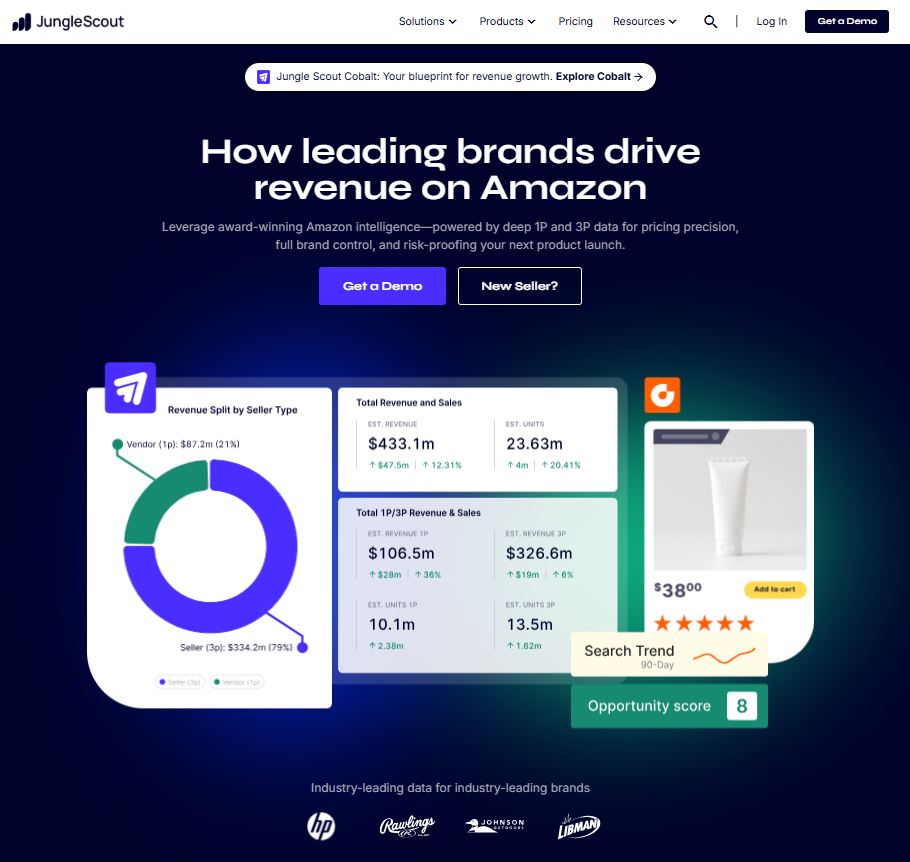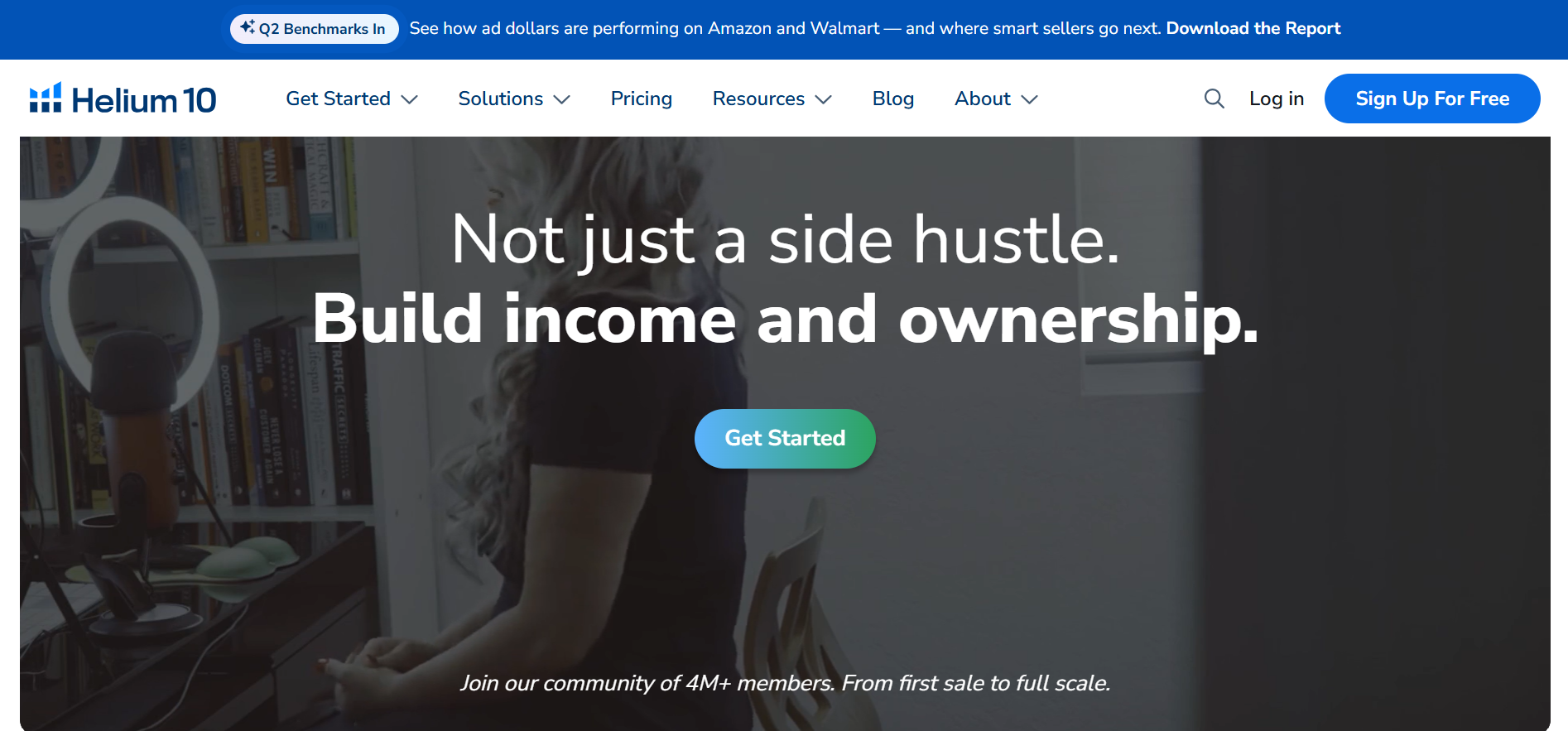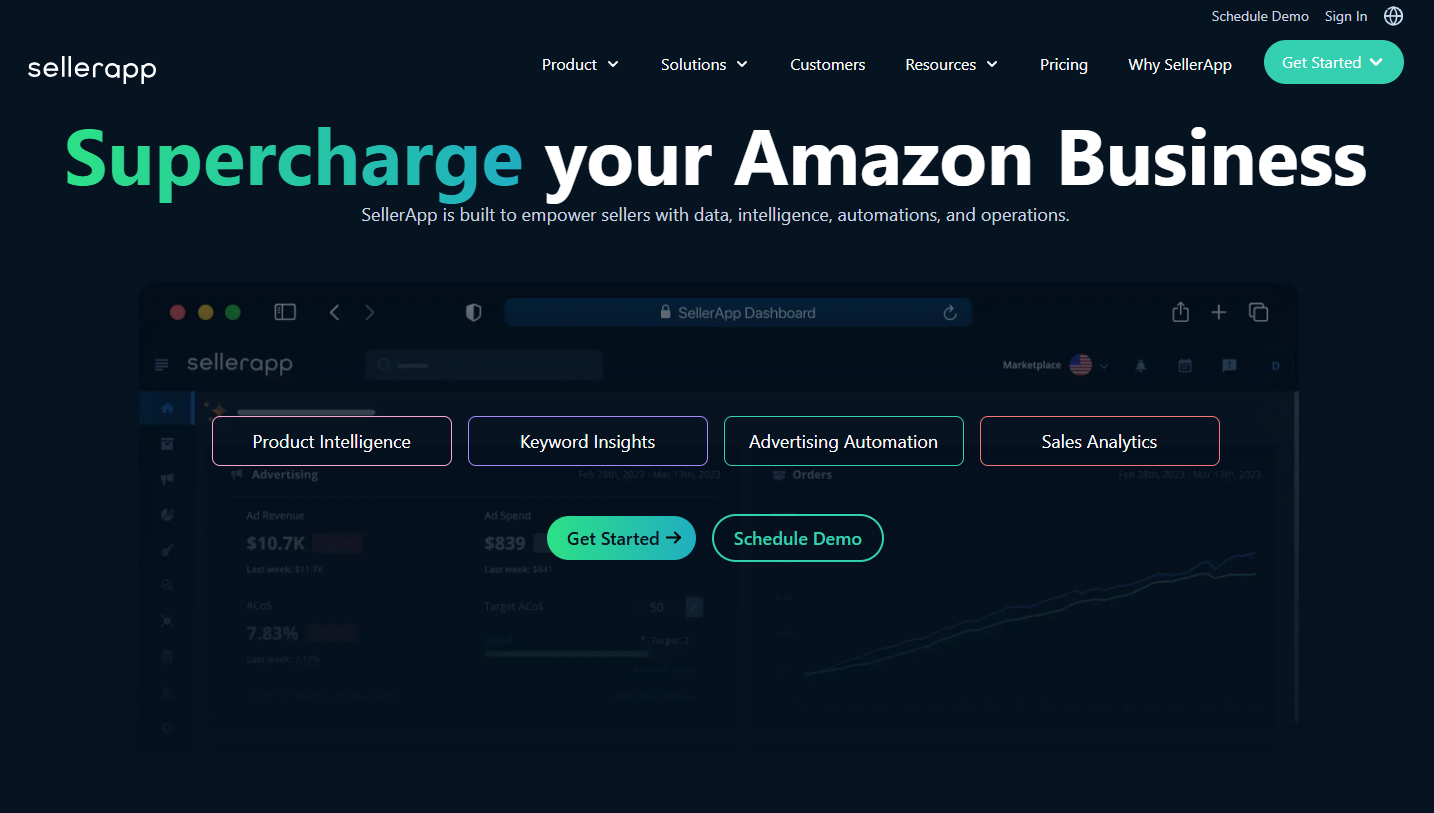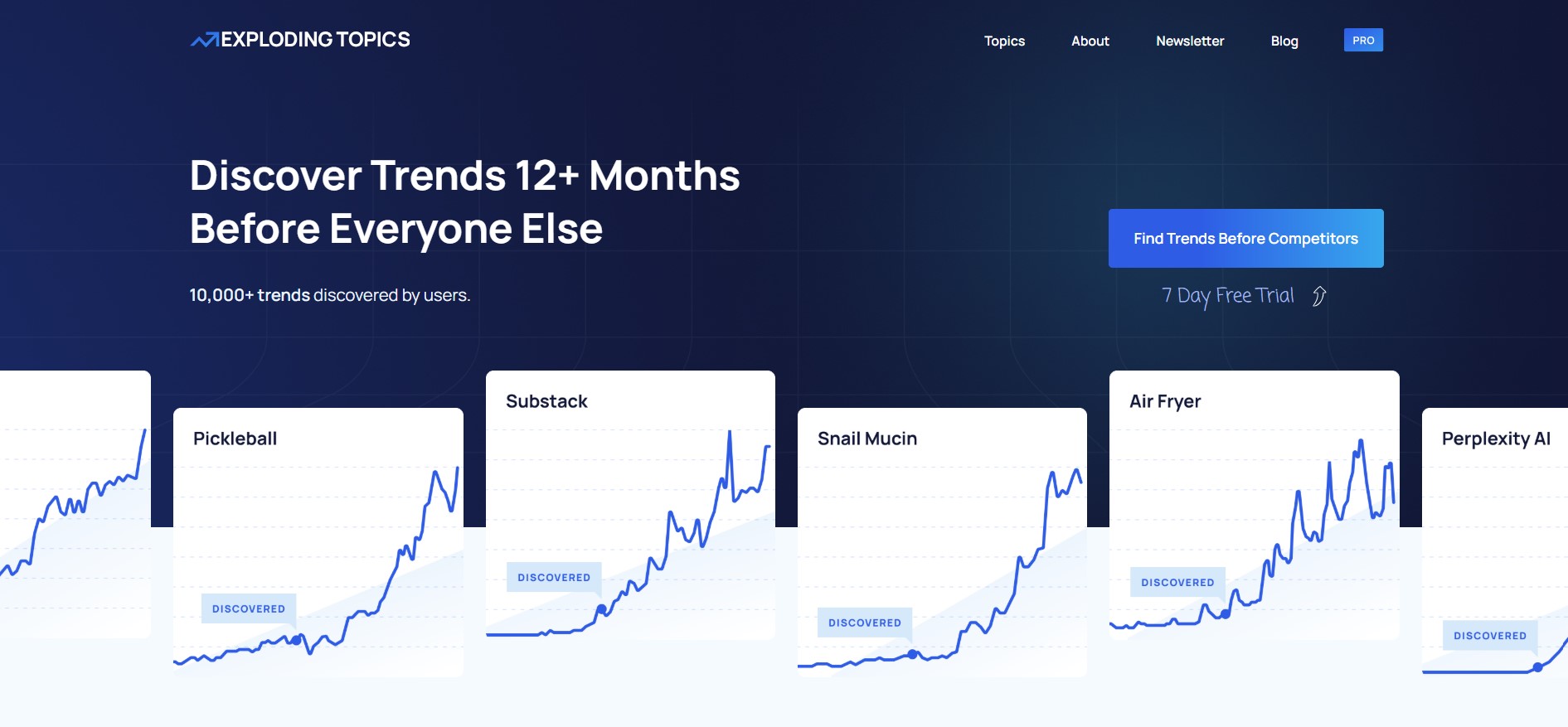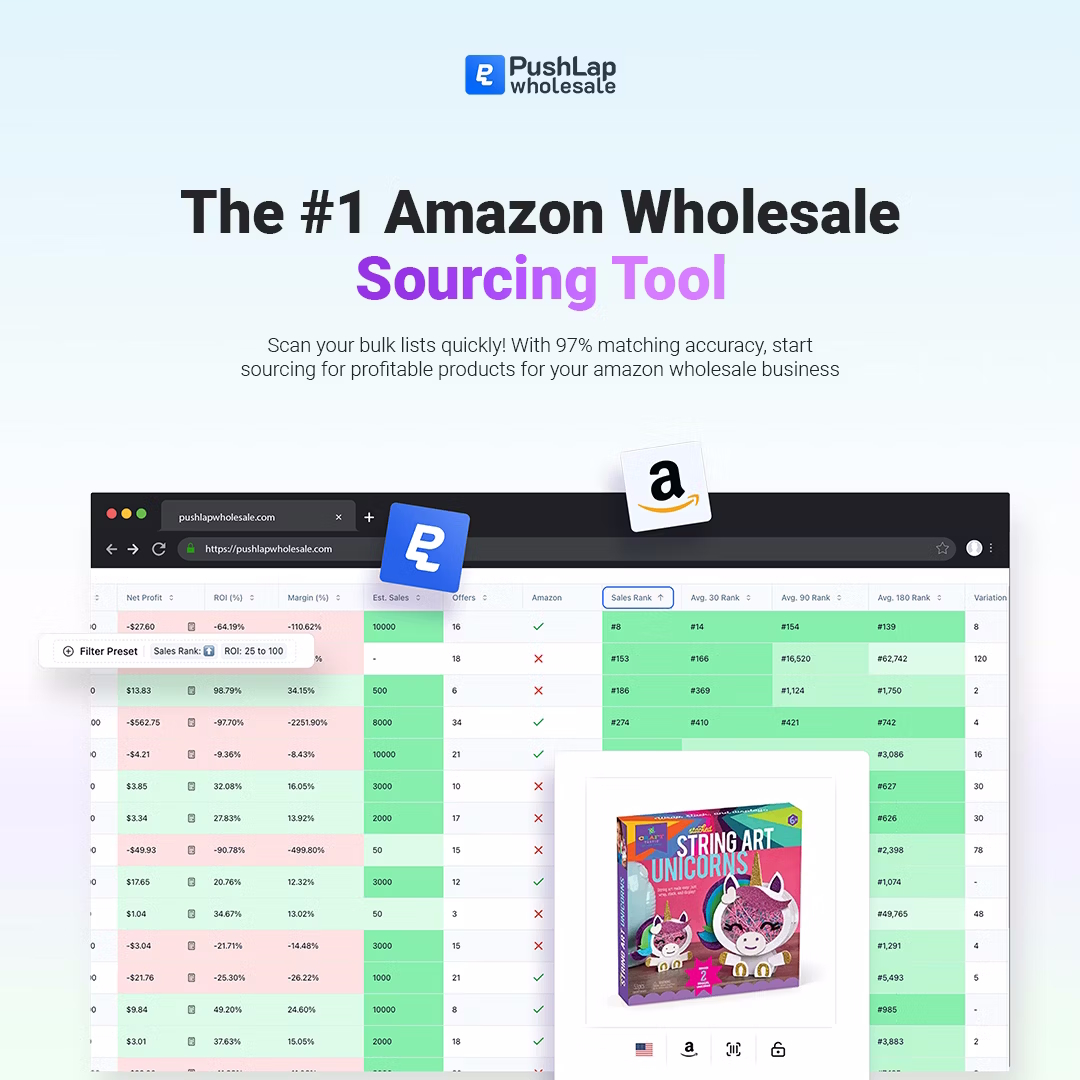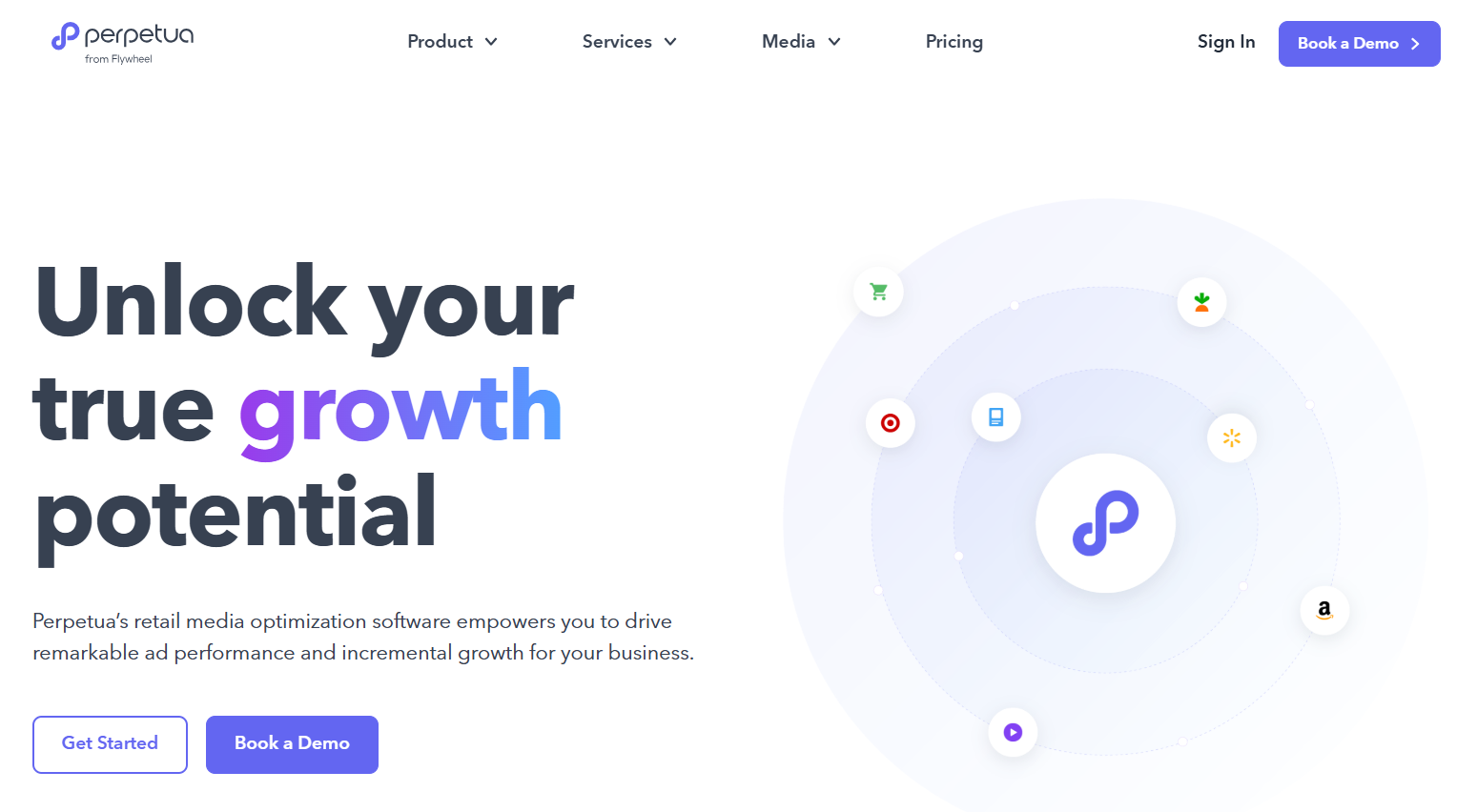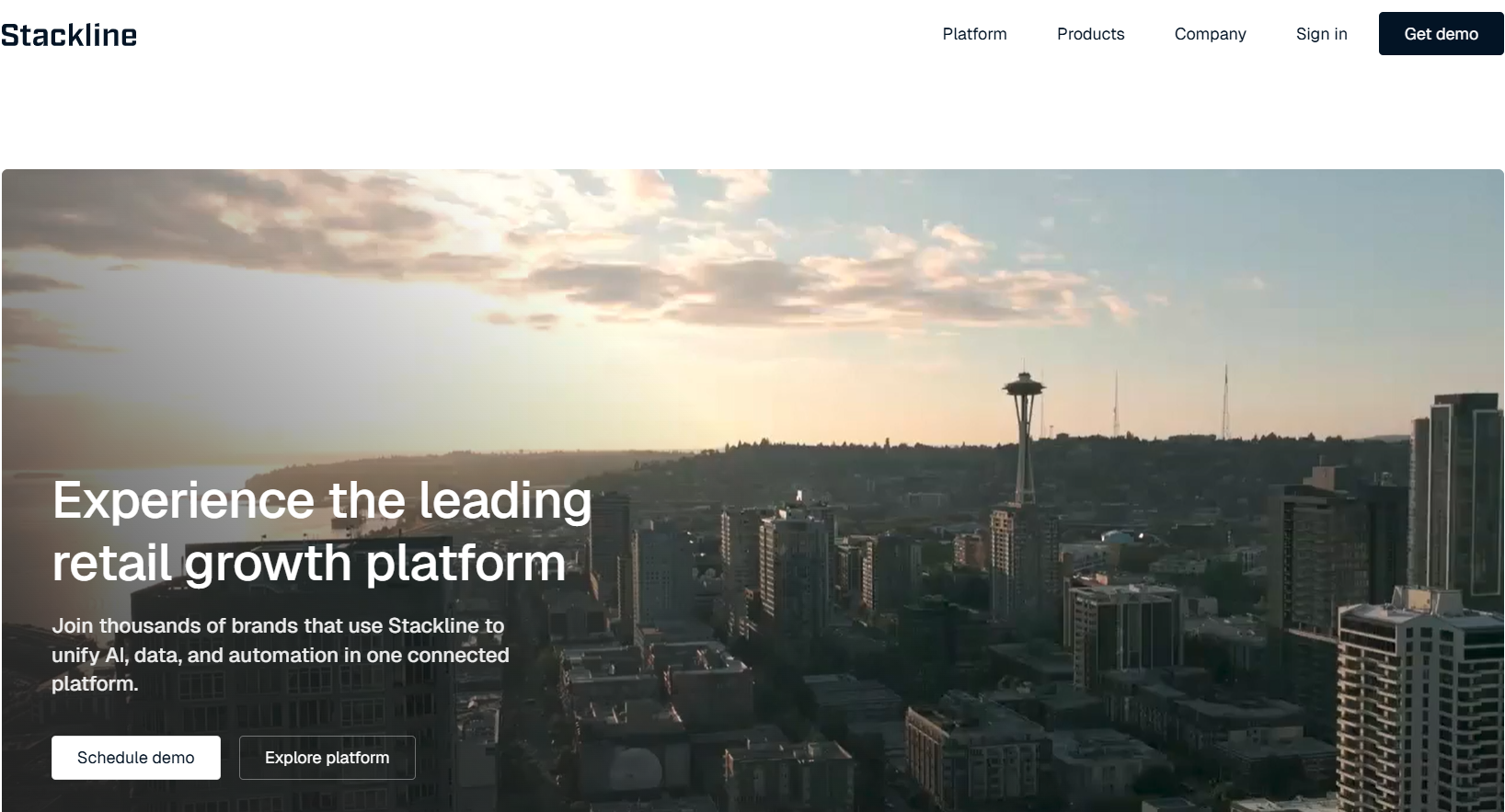Best AMZScout Alternatives to Explore
Finding the right tool for Amazon selling can feel like trial and error. AMZScout is popular, but it’s not the only option out there. Plenty of other platforms offer similar or even broader features that help with product research, keyword tracking, and sales analytics. If you’re looking around for something that might fit your workflow better, this guide will walk you through a few solid alternatives worth checking out.
1. Wiseppc
At WisePPC, we position ourselves as a practical alternative to AMZScout, giving our clients a clearer, more unified view of their business performance across marketplaces. Instead of juggling multiple dashboards or exporting endless spreadsheets, our platform brings ads, sales, and inventory data together in one place. We’ve built it to cut through the noise, so our users can focus on what truly matters: spotting trends, optimizing campaigns, and keeping products visible-without overspending on ads.
We don’t just deliver raw numbers. We provide context by showing how advertising impacts organic sales, flagging underperforming areas, and simplifying adjustments with features like inline editing. Whether our clients are managing a few products or overseeing multiple accounts, our tools are flexible enough to support their workflow. For those exploring alternatives to AMZScout, we offer a streamlined, effective solution that puts control back in their hands-without adding unnecessary complexity.
Key Highlights:
- Unified dashboard for ads, sales, and inventory
- Inline campaign editing without switching screens
- Long-term historical data storage beyond Amazon’s limits
- Placement-level performance analysis
- Automated optimization suggestions
Who it’s best for:
- Sellers who want to track ads and organic performance together
- Teams managing multiple Amazon or Shopify accounts
- Agencies handling client campaigns in one place
- Brands that need detailed reporting without extra manual work
Contact and Social Media Information:
- Website: wiseppc.com
- LinkedIn: www.linkedin.com/company/wiseppc
- Instagram: www.instagram.com/wiseppc
- Facebook: www.facebook.com/people/Wise-PPC/61573154427547
2. Amazing.com (Zoof)
Amazing.com, which acquired Zoof, offers a mix of AI-powered tools and training programs for Amazon sellers. Their platform focuses on product research, brand building, and sales optimization, making it one of the closer AMZScout alternatives. Tools like Amazing Detective help identify potential products by analyzing demand, competition, and profitability. They also include keyword discovery and trend analysis features that guide sellers in spotting viable opportunities.
What makes Amazing.com different is that it combines software with training and community access. Members can join coaching sessions, learn from step-by-step courses, and access resources like templates and landing pages. By combining data-driven tools with education, the platform is designed to help both beginners and experienced sellers work on product selection and brand growth.
Key Highlights:
- AI-powered product research and keyword discovery
- Tools for brand building, content creation, and positioning
- Training modules for both new and experienced sellers
- Community and coaching support included with membership
- Real-time sales and trend insights
Who it’s best for:
- New Amazon sellers who want both tools and guidance
- Entrepreneurs looking to build a brand alongside product sales
- Sellers who prefer combining product research with training
- Community-driven sellers who benefit from shared experiences
Contact and Social Media Information:
- Website: amazing.com
- Address: 7600 Chevy Chase Drive Bldg 2 Suite 300 Austin, TX 78752
- E-mail: [email protected]
- Phone: 1 (888) 415-0615
- LinkedIn: www.linkedin.com/company/amazingcom
- Instagram: www.instagram.com/amazing_dotcom
- Facebook: www.facebook.com/amazingcom
3. ZonGuru
ZonGuru offers a suite of tools built specifically for Amazon sellers who want to handle product research, listing optimization, and customer engagement in one place. Unlike AMZScout, which is often seen mainly as a product research tool, ZonGuru takes a wider approach by covering several areas of the selling process. Their platform includes tools to spot new product opportunities, uncover valuable keywords, and create stronger listings. Sellers can also use features like automated customer emails and tracking dashboards to manage performance more smoothly.
Because the platform was designed by experienced sellers, the tools aim to simplify daily tasks without needing a steep learning curve. For those who want alternatives to AMZScout that focus not only on discovering products but also on building and maintaining strong listings, ZonGuru is one of the more practical options. It balances product insights with hands-on tools for running an Amazon business more effectively.
Key Highlights:
- Product research tools with integrated Chrome extension
- Keyword discovery for identifying high-converting terms
- Listing optimization with AI-supported features
- Customer engagement tools like email automation
- Performance dashboards for tracking growth
Who it’s best for:
- Sellers who want a mix of product research and listing management
- Amazon FBA businesses looking for easy-to-use tools
- Agencies working with multiple seller accounts
- Sellers who need automated support for customer communication
Contact and Social Media Information:
- Website: www.zonguru.com
- Instagram: www.instagram.com/zonguru
- Facebook: www.facebook.com/zonguru
4. SmartScout
SmartScout focuses heavily on marketplace intelligence for Amazon. While AMZScout leans toward individual product discovery, SmartScout dives deep into the entire ecosystem of categories, brands, sellers, and keywords. Their platform lets users explore market trends, study competitors, and even map out regional differences in performance. With tools like AdSpy, sellers can review competitor ad strategies, while the Traffic Graph shows how shoppers move between listings.
This approach makes SmartScout more about market-level decisions rather than just spotting single product opportunities. For sellers who want an AMZScout alternative that uncovers broader insights into how Amazon operates, SmartScout provides detailed datasets and visualizations. It’s built for users who want to see the bigger picture and adjust their strategies around competition, visibility, and advertising performance.
Key Highlights:
- Marketplace intelligence across categories, brands, and sellers
- AdSpy tool for analyzing competitor PPC campaigns
- Traffic Graph to map customer navigation between listings
- Keyword and relevancy tools for refining ad and SEO strategies
- Historical data tracking for long-term market insights
Who it’s best for:
- Sellers wanting to analyze competitors’ advertising and sales activity
- Agencies managing multiple Amazon accounts and campaigns
- Wholesale or arbitrage sellers needing detailed category data
- Brands looking to understand long-term Amazon trends
Contact and Social Media Information:
- Website: smartscout.com
- LinkedIn: www.linkedin.com/company/smartscoutcom
- Facebook: www.facebook.com/smartscout.pro
5. Jungle Scout
Jungle Scout is one of the better-known Amazon tools and often compared directly with AMZScout. It provides a wide range of features covering product research, supplier databases, keyword analysis, and review automation. The platform also supports larger sellers and brands with more advanced solutions like Cobalt, which delivers market insights, trend tracking, and competitor benchmarking. This makes it useful for both solo entrepreneurs and enterprise-level teams. What sets Jungle Scout apart as an alternative to AMZScout is its blend of beginner-friendly tools and enterprise-level analytics. New sellers can start with product and keyword research, while larger operations can use it for campaign optimization and pricing strategy. It’s a more all-encompassing platform, making it appealing to those who want one system to handle most aspects of selling on Amazon.
Key Highlights:
- Product and keyword research tools for sellers at all levels
- Supplier database for sourcing new products
- Review automation to improve customer feedback management
- Cobalt platform for enterprise-level market intelligence
- Campaign optimization features with data-driven insights
Services:
- New sellers looking for guided product research and listing tools
- Established brands that want advanced analytics and benchmarking
- Agencies working with multiple clients on Amazon
- Sellers interested in both short-term sales and long-term strategy
Contact and Social Media Information:
- Website: junglescout.com
- Address: 328 S Jefferson St, Suite 1030, Chicago, IL 60661
- E-mail: [email protected]
- LinkedIn: www.linkedin.com/company/junglescout
- Instagram: www.instagram.com/junglescout_
- Twitter: x.com/junglescout
- Facebook: www.facebook.com/amazonjunglescout
6. Helium 10
Helium 10 is another major name often brought up as an AMZScout alternative. It offers a full suite of tools that cover nearly every stage of the Amazon selling process. Sellers can use it to find profitable products, research keywords, optimize listings, manage inventory, and track advertising campaigns. The platform also integrates AI features for ad optimization, competitor tracking, and market trend analysis. One thing that makes Helium 10 stand out is its community and training resources. In addition to software, they provide video courses, webinars, and seller communities that support both beginners and experienced sellers. This mix of education and tools positions Helium 10 as a comprehensive option for those who want more than just product research.
Key Highlights:
- Product and keyword research with AI-powered insights
- Listing optimization tools with competitor tracking
- Inventory and operations management features
- Ad optimization with automated recommendations
- Training resources and community support
Services:
- Sellers looking for an all-in-one toolkit for Amazon growth
- Beginners who want education alongside software
- Brands running multiple products and advertising campaigns
- Experienced sellers scaling into global marketplaces
Contact and Social Media Information:
- Website: helium10.com
- E-mail: [email protected]
- LinkedIn: www.linkedin.com/company/helium10
- Instagram: www.instagram.com/helium10software
- Twitter: x.com/H10Software
- Facebook: www.facebook.com/Helium10Software
7. SellerApp
SellerApp brings together a range of tools that help sellers understand and manage their Amazon business in more detail. Instead of juggling separate dashboards, it provides one place to track performance across marketplaces, automate ads, and see where money is being made or lost. They put a lot of focus on using data to guide decisions, whether that’s adjusting ad campaigns, refining product listings, or comparing performance against competitors. For those running multiple accounts or working at scale, SellerApp offers features like bulk reporting, account-wide insights, and automated alerts. They also provide managed services for sellers who prefer more hands-off support. Overall, the platform is built around helping people use data not just to monitor their store, but to actively shape strategy and streamline daily tasks.
Key Highlights:
- Unified dashboard for performance tracking across marketplaces
- AI-driven ad automation with rule-based controls
- Profit and loss calculations at multiple levels
- Customizable reporting and alerts
- Competitive benchmarking and listing quality tools
Services:
- Amazon sellers managing multiple accounts or marketplaces
- Agencies handling campaigns for different clients
- Brands looking for both DIY tools and managed service options
- Teams that want automated ad adjustments with reporting flexibility
Contact and Social Media Information:
- Website: www.sellerapp.com
- Address: 4819 Bryant Mdws Dr, Spring, TX 77386, United States
- Phone: +1-256-363-0567
- E-mail: [email protected]
- LinkedIn: www.linkedin.com/company/sellerapp
- Instagram: www.instagram.com/sellerapp_insta
- Twitter: x.com/SellerApp_Inc
- Facebook: www.facebook.com/sellerapp
8. Exploding Topics
Exploding Topics focuses on spotting early trends before they become widely known. Their system scans huge amounts of data across the web, from social media to news outlets, and then uses algorithms plus human review to identify what’s starting to gain traction. Instead of sellers guessing what products or niches might take off, this gives them a clearer view of where attention is shifting. The platform has free research tools, like keyword checkers and backlink analysis, but its core value lies in the trend database. Businesses can filter by industry or interest area to see what’s bubbling up months or even years before it hits the mainstream. For e-commerce sellers, this can mean getting ahead on product sourcing or content ideas before competition gets crowded.
Key Highlights:
- Tracks online conversations and search data to detect new trends
- Mix of machine learning and human review for accuracy
- Database of over one million identified trends
- Industry filtering to find relevant opportunities
- Integration with Semrush since 2024 for deeper analytics
Services:
- Amazon sellers looking for early product opportunities
- Marketers and content creators who rely on trend insights
- Businesses wanting to test new niches before they peak
- Agencies seeking data-backed reports for clients
Contact and Social Media Information:
- Website: explodingtopics.com
- Address: USA, 800 Boylston Street, Suite 2475, Boston, MA 02199
- Instagram: www.instagram.com/explodingtopics
- Twitter: x.com/explodingtopics
9. Push Lap Wholesale
Push Lap Wholesale is designed for Amazon wholesale and online arbitrage sellers who work with bulk product lists. Instead of manually checking items one by one, sellers can upload large lists of UPCs or ASINs, and the tool uses AI to match data, calculate profit, and flag potentially good products. The software connects with multiple Amazon marketplaces worldwide, so users can research opportunities beyond just the US.
Along with scanning, Push Lap includes calculators for FBA and FBM fees, tools for competition tracking, and even a database of suppliers. For organization, sellers can save and manage purchase lists or export product data directly into Google Sheets. It’s aimed at cutting down the hours typically spent on product research by centralizing and automating much of the work.
Key Highlights
- Bulk scanning of product lists with AI matching
- Integrated FBA and FBM fee calculators
- Supplier database with contacts
- Export options to Google Sheets for easy workflows
Services
- Amazon wholesale sellers analyzing large product lists
- Online arbitrage sellers needing quick profit checks
- Teams working with suppliers and purchase lists
- Sellers expanding to multiple international Amazon marketplaces
Contact and Social Media Information
- Website: www.pushlapwholesale.com
- LinkedIn: www.linkedin.com/company/push-lap-wholesale
- Instagram: www.instagram.com/pushlapwholesale
- Twitter: x.com/pushlapw
- Facebook: www.facebook.com/people/PushLap-Wholesale/61554705636749
10. Perpetua
Perpetua builds tools that help sellers manage and optimize advertising across marketplaces like Amazon and Walmart. Instead of manually creating and adjusting campaigns, users can set broader goals such as growth or profitability, and the platform’s automation takes care of the execution. They also offer different ad formats, including display and video, which gives sellers a wider range of options to reach customers. Alongside ad management, there are reporting features that track how products are performing in their categories and how ad spend translates into results across channels.
The platform puts a lot of emphasis on measurement and visibility. Sellers can see not just sales numbers but also how keywords, ad placements, and competitor activity influence performance. This makes it possible to adjust strategies based on actual outcomes rather than guesswork. For sellers looking at AMZScout alternatives, Perpetua provides a route that leans more on automation and data-driven decision-making, especially in advertising.
Key Highlights
- Automated campaign creation and optimization based on goals
- Advertising support across Amazon, Walmart, and other marketplaces
- Options for display and video ads in addition to search
- Customizable reporting with retail and digital shelf insights
- Algorithms that adjust bids and budgets in real time
Services
- Sellers who want to automate their ad campaigns and reduce manual work
- Businesses running ads across multiple retail platforms
- Teams looking for deeper visibility into ad spend impact
Contact and Social Media Information
- Website: perpetua.io
- Address: 36 Maplewood Ave, Portsmouth, NH 03801, United States
- E-mail: [email protected]
- LinkedIn: www.linkedin.com/company/perpetua-labs
- Instagram: www.instagram.com/perpetua.io
- Twitter: x.com/PerpetuaLabs
- Facebook: www.facebook.com/perpetualabs
11. Stackline
Stackline works with brands to analyze and grow their presence across ecommerce platforms and retailers. Their suite of products covers market intelligence, advertising, shopper analytics, and forecasting. With tools like Atlas and Beacon, sellers can track competitor ad spend, review product performance, and build projections for future sales. The platform also integrates with multiple retailers, not just Amazon, giving sellers a broader perspective of how their products compete in different markets.
The focus is on bringing together a lot of moving parts into one place, so that sellers can see trends in traffic, pricing, content performance, and customer behavior without juggling several disconnected tools. Their forecasting and automation features are designed to help sellers act quickly on data rather than reacting late. For those evaluating AMZScout alternatives, Stackline represents a more enterprise-level option with a wider scope beyond just product research.
Key Highlights
- Market intelligence covering Amazon, Walmart, Target, and more
- Competitive analysis tools for ad spend, pricing, and reviews
- Forecasting with AI-driven models for sales and inventory
- Shopper analytics to understand audience behavior across channels
- Services ranging from advertising support to SEO and content management
Services
- Established brands managing products across multiple retailers
- Teams that need detailed competitive intelligence and forecasting
- Businesses looking for a single platform to combine analytics, advertising, and operations
Contact and Social Media Information
- Website: www.stackline.com
- Address: 920 5th Avenue, Suite 3600, Seattle, WA 98104, United States
- E-mail: [email protected]
- LinkedIn: www.linkedin.com/company/stackline
- Instagram: www.instagram.com/stackline_hq
- Twitter: x.com/stacklinehq
Conclusion
At the end of the day, there’s no one-size-fits-all when it comes to seller tools. Some folks want deep analytics, others prefer simplicity, and many just want something that saves them time without extra clutter. AMZScout works well for some, but alternatives can often give you different angles or features you didn’t know you needed.
The best approach is to think about what you’re struggling with right now. Is it finding profitable products? Keeping an eye on competitors? Or maybe tracking ads without getting lost in spreadsheets? Once you’ve got that clear, picking an alternative becomes a lot easier. Try a few out, see which one feels natural, and stick with the one that helps you make decisions without second-guessing every step. In the long run, the right tool is the one that actually fits the way you sell, not just the one everyone talks about.
Join the WisePPC Beta and Get Exclusive Access Benefits
WisePPC is now in beta — and we’re inviting a limited number of early users to join. As a beta tester, you'll get free access, lifetime perks, and a chance to help shape the product — from an Amazon Ads Verified Partner you can trust.
 No credit card required
No credit card required
 Free in beta and free extra month free after release
Free in beta and free extra month free after release
 25% off for life — limited beta offer
25% off for life — limited beta offer
 Access metrics Amazon Ads won’t show you
Access metrics Amazon Ads won’t show you
 Be part of shaping the product with your feedback
Be part of shaping the product with your feedback











